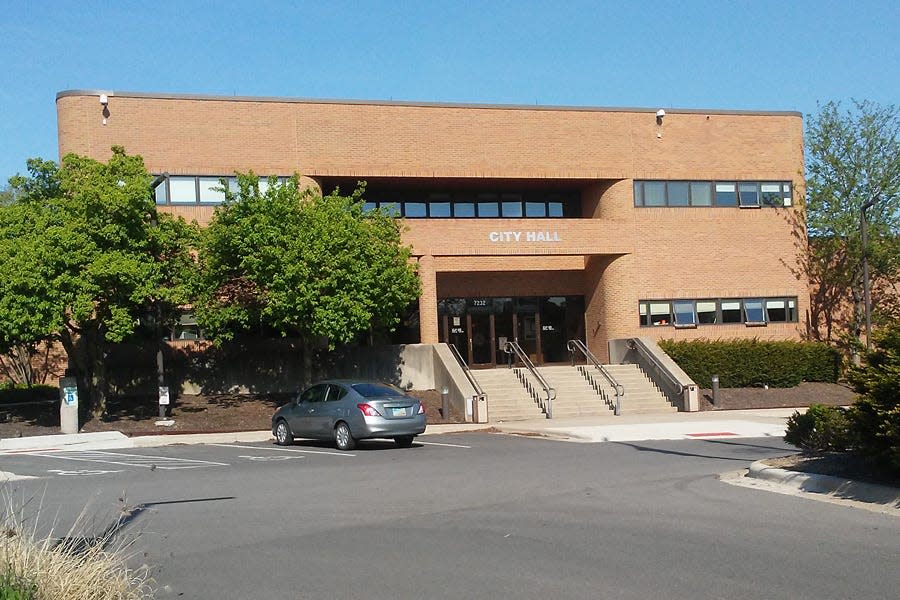Council sets policy for city-owned flagpoles in Reynoldsburg

A recent U.S. Supreme Court ruling has prompted Reynoldsburg and other municipalities to enact or review policies about what flags or banners can be flown or displayed on city-owned poles.
“I think it protects any city better to have a written policy than to not have one,” Reynoldsburg City Attorney Chris Shook said. “I don’t think it’s a necessity, but I think you want to look at what the Supreme Court tells you and use their guidance. What I think they’re telling cities is that it’s in the best interest to have a policy.”
City Council unanimously approved a “flag, street pole and right-of-way policy” on June 13. It states that the city’s flagpoles, street poles, sidewalks, parking lots and streets “are not intended to serve as a forum for free expression by the public, and the display of any and all ceremonial flags, banners, and/or other art upon them is up to the discretion of the city.”
The policy also states that ceremonial flags and banners “reflect the speech of the city of Reynoldsburg and may identify with a historical event, holiday, cause or people group that the City Council wishes to commemorate in accordance with the city’s values and priorities.”
Approved ceremonial actions include the rainbow flag for Pride Month, Juneteenth flag, Thin Blue Line flag commemorating Police Officer Memorial Week, Tree City USA flag recognizing the Arbor Day Foundation and the Macedonian flag to commemorate the city’s Macedonian Festival.
The policy also provides guidance for military banners, school banners recognizing student-athletes and city-sponsored events.
“An outside group can’t simply come in and apply to put something up,” Shook said. “It’s an overt action on the part of the city. We tried to specify those flags or banners (that) would be allowed just based on tradition or what we’ve done in years past.”
The Supreme Court case involved a Boston man’s request to display a Christian flag outside Boston City Hall. The flag would have been one of many that city leaders routinely allowed private groups to fly temporarily.
However, Boston denied Harold Shurtleff's request, stating that a religious flag would violate the Constitution's Establishment Clause, which bars governments from establishing religion.
A U.S. District Court and the 1st U.S. Circuit Court of Appeals ruled that Boston was permitted to deny Shurtleff on the grounds that raising the flag was an act of government speech, not private expression, and thus, the city was entitled to selectively choose which messages it wants to promote on its flagpole.
However, the unanimous Supreme Court decision said that was a violation of free speech because the parameters of the Boston program were dictated by the public's decision – not the city’s – to choose whatever flags it wanted.
The city of Delaware decided to pause its flag program following the Supreme Court’s ruling, a decision that angered the LGBTQ community because rainbow Pride flags were not permitted to be flown during Pride Month.
The group's members were upset, in part, because the decision was made after the group had received permission to raise its flags, holding fundraisers and purchasing more flags to hoist.
Columbus Dispatch reporter Dean Narciso contributed to this story
editorial@thisweeknews.com
@ThisWeekNews
This article originally appeared on ThisWeek: Council sets policy for city-owned flagpoles in Reynoldsburg

